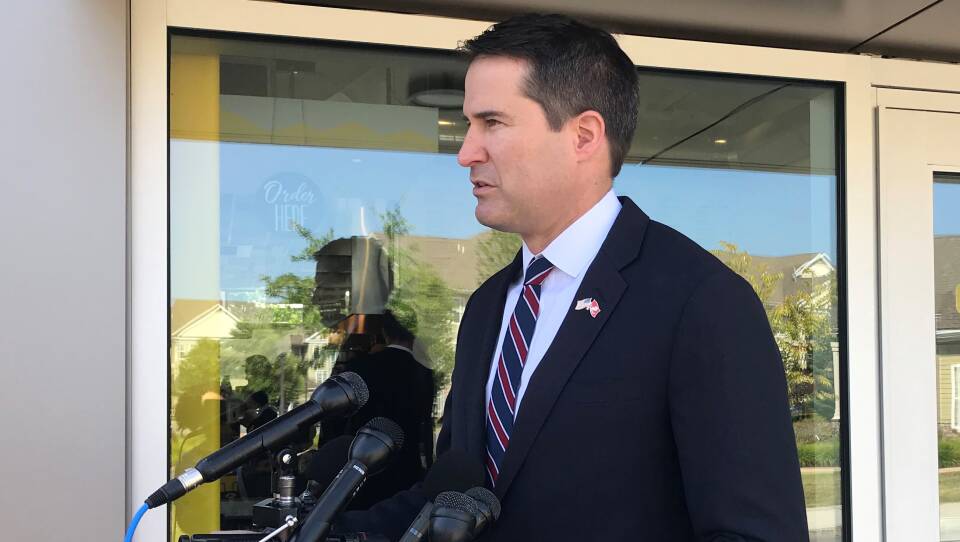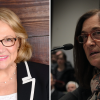U.S. Rep. Seth Moulton is still running for president, but you wouldn’t know it by watching the Democrats debate.
Moulton, a former marine who served four tours in Iraq, failed to qualify for the first two Democratic presidential candidate debates in June and July, but has vowed to stay in the race.
“I’m not a quitter,” Moulton told reporters Tuesday at a district visit to Andover. “I don’t think the summer debates matter that much.”
In a wide-ranging conversation about his campaign and platform, the three-term congressman criticized Senate leader Mitch McConnell for blocking legislation that would require background checks for gun buyers, among other gun control bills.
“They’re afraid of the NRA [National Rifle Association],” Moulton said, referring to McConnell and President Donald Trump. “I can’t think of a better example of just an utter lack of courage in politics today.”
Moulton said his experience as a combat veteran and his platform on national security distinguish him as a presidential candidate.
To keep the country safe, Moulton proposes spending less on ships and fighter planes. Instead, he wants to invest in new technologies, including autonomous, hypersonic and cyber weapons. He also calls for forming new strategic alliances to counter the influence of Russia and China.
So far, these ideas haven’t helped Moulton meet the thresholds set by the Democratic National Committee to qualify for the televised primary debates. To qualify for the last debate, candidates needed to garner 1 percent support in at least three polls approved by the DNC. Alternatively, candidates could qualify by signing up 65,000 unique campaign donors. To show broad geographic support, candidates need to show that they have at least 200 donors each in 20 states.
Read more: Two Nights In Detroit: Separating The Democratic Realists From The Idealists At The Debates
Moulton blames his performance on his late entrance to the race — he announced in April — and the DNC’s qualification criteria, which he said are “driven by social media.”
Furthermore, the two debates haven’t helped voters pick a winner among the wide field of candidates, Moulton said.
“We really don’t know who the nominee should be to take on Trump,” Moulton said. After two debates with 20 candidates, "the overwhelming reaction is, 'Gee, I’m not sure we’ve found the right person.' I don’t think the message to people like me should be to drop out."





